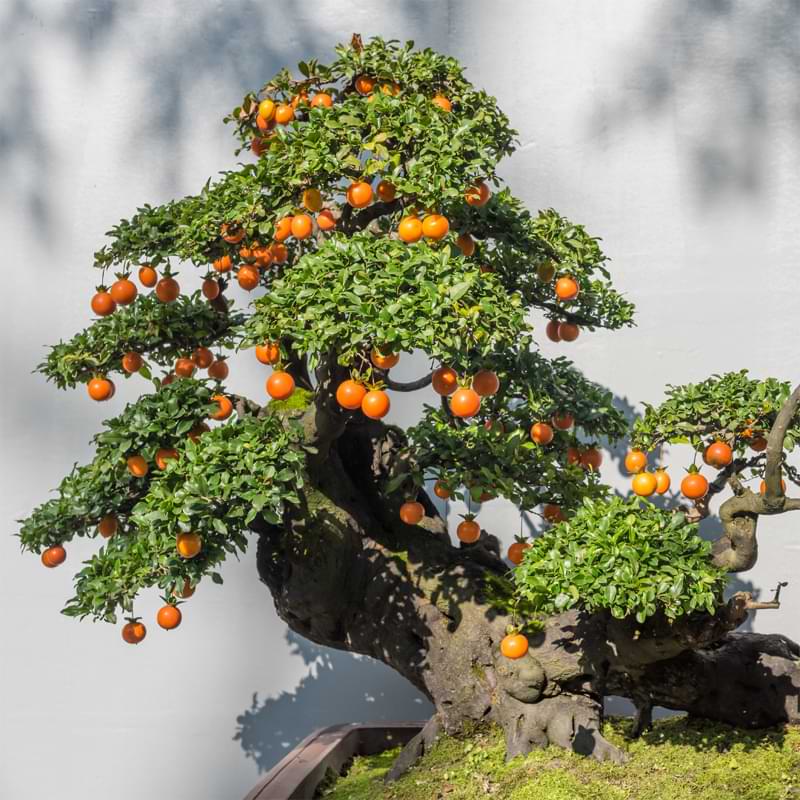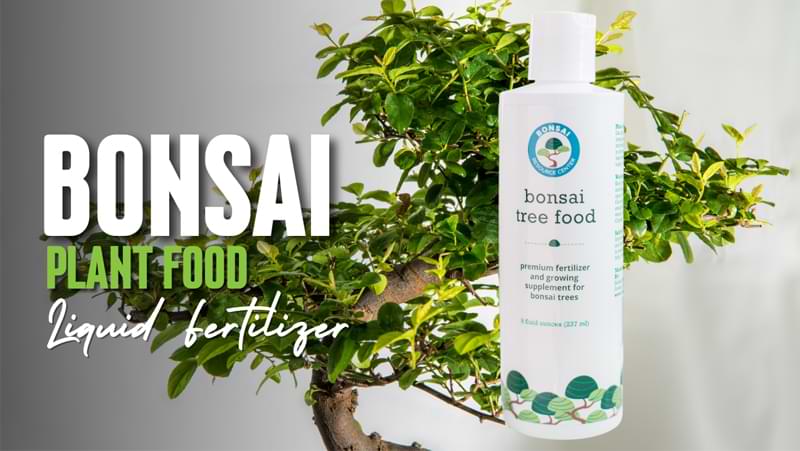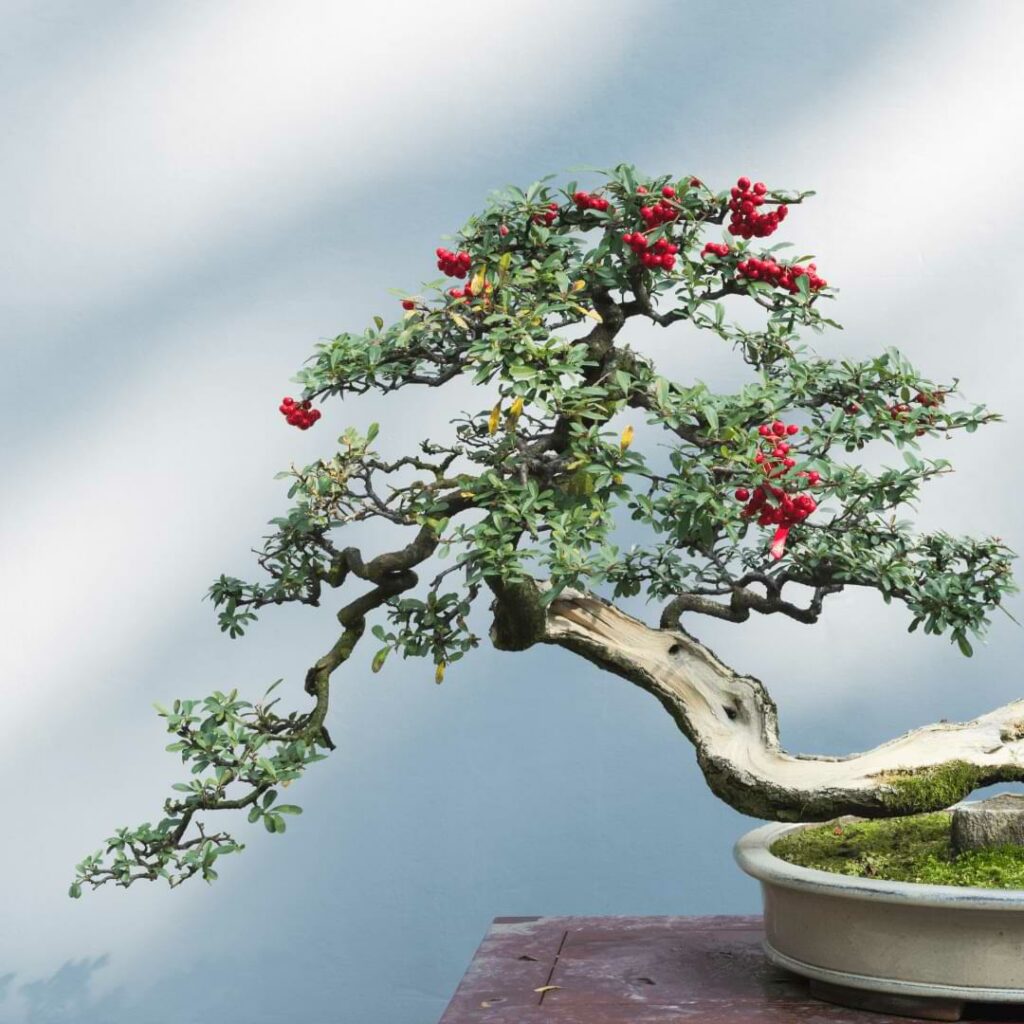What are the best fruit trees to bonsai? Looking to add a touch of natural beauty and tranquility to your home or garden? Look no further than a stunning bonsai fruit tree! These miniature trees not only bring an exquisite aesthetic appeal and can range in colors. When cared for and pollinated properly, they may even produce fruit!
Best Fruit Trees To Bonsai
There are several options when it comes to bonsai fruit trees, and here are just some of our favorites.
1. Citrus Trees (Citrus spp)
Citrus trees are a popular choice for bonsai enthusiasts thanks to their vibrant foliage and fragrant blooms. These miniature versions of the iconic orange, lemon, and lime trees can add a refreshing touch to any garden or indoor space.
When caring for citrus bonsai trees, it’s important to provide them with ample sunlight and well-draining soil. Regular watering and occasional fertilization will help promote healthy growth and encourage fruit production.
While some citrus varieties grown as bonsai may produce edible fruits, others may not be suitable for consumption due to their smaller size or different taste profiles compared to their full-sized counterparts. Nonetheless, these petite citrus creations still offer plenty of aesthetic appeal.
2. Apple Trees (Malus spp.)
Apple trees are a popular choice for bonsai enthusiasts due to their beautiful blossoms and delicious fruits. These miniature versions of apple trees can add a touch of charm to any garden or indoor space.
When it comes to choosing an apple tree for bonsai, there are several varieties that work well. One popular choice is the dwarf variety, such as the ‘Anna’ apple tree, which stays small and compact while still producing tasty apples.
Another option is the ‘Golden Delicious’ apple tree, known for its sweet and crisp fruit. This variety can be trained into various bonsai styles, including formal upright or cascade.
To ensure your apple bonsai produces fruit, proper care is essential. Apple trees require regular watering, sunlight exposure, and fertilization. Pruning should also be done regularly to maintain the desired shape and encourage fruit production.
Depending on your apple variety, you may need help with pollination to actually get fruit from your tree. Even without the fruit, these bonsai tree varieties are still stunning!
3. Fig Trees (Ficus carica)
One of the most popular fruit trees to bonsai is the fig tree. With their distinctive lobed leaves and gnarled trunks, fig trees make for stunning bonsai specimens. They are also fairly easy to care for, making them a great choice for beginners.
When it comes to bonsai cultivation, there are several different varieties of fig trees to choose from. Some common options include the Brown Turkey Fig, Celeste Fig, and Black Mission Fig. Each variety has its own unique characteristics and growth habits.
Fig trees can produce small fruits when grown as bonsais, although they may not be as abundant or large as those grown on full-sized trees. Nevertheless, these miniature fruits can still be enjoyed and add an extra element of interest to your bonsai display.
4. Pomegranate Trees (Punica granatum)
Known for their delicious and nutritious fruits, pomegranate trees make for an interesting choice when it comes to bonsai cultivation. Not only do they provide visual appeal with their fruit, they also offer the opportunity to enjoy the unique flavor of home-grown pomegranates right from your own mini tree.
Caring for a pomegranate bonsai is relatively easy. They thrive in well-draining soil and require regular watering to keep them healthy. Pruning is essential to maintain the desired shape and size of your tree, as well as promoting fruit production.
When it comes to growing fruits on your pomegranate bonsai, you can expect small-sized but flavorful treats. These miniature versions of the traditional pomegranates pack just as much taste into their compact form.
5. Quince Trees (Chaenomeles spp.)
Quince trees are a delightful choice for bonsai enthusiasts looking to add some variety to their collection. These small fruit-bearing trees have a rich history and unique characteristics that make them stand out.
One of the most appealing aspects of quince trees is their beautiful flowers. In spring, they burst into bloom with delicate pink or white blossoms, adding a touch of elegance to wherever they happen to be. The vibrant colors and sweet scent make them a joy to behold.
The fruit produced by quince trees is another reason why they are sought after in the world of bonsai. Although it may not be as commonly consumed as other fruits such as apples or oranges, quinces have an intriguing flavor profile. They are known for their tartness when raw but transform into something wonderfully aromatic and sweet when cooked.
Caring for quince bonsai trees requires some attention to detail. They prefer well-draining soil and require regular watering, especially during hot summer months. Pruning should be done carefully to maintain the desired shape while promoting healthy growth.
While many fruit trees can struggle indoors due to limited sunlight and space constraints, quince tree bonsais can thrive if given proper care. Placing them near a bright window or using artificial grow lights can provide enough light for their needs.
6. Persimmon Trees (Diospyros kaki)
Persimmon trees, with their vibrant foliage and delicious fruit, are a fantastic choice for bonsai enthusiasts. These trees belong to the Ebenaceae family and are native to East Asia. Their small size makes them ideal for bonsai cultivation.
One popular variety of persimmon tree is the Japanese Persimmon (Diospyros kaki). This tree produces large, orange fruits that are both sweet and tangy in flavor. Another variety is the American Persimmon (Diospyros virginiana), which has smaller fruits with a unique, rich taste.
7. Cherry Trees (Prunus spp.)
Cherry trees are a popular choice for bonsai enthusiasts due to their beautiful blossoms and delicious fruit. There are several cherry tree varieties to choose from, too. Some common types include the Yoshino cherry, which is known for its delicate pink flowers, and the Japanese flowering cherry, which boasts stunning white blooms. Each variety has its own unique charm and characteristics.
One thing to keep in mind when growing a cherry bonsai is that they require a period of cold dormancy in order to produce fruit. This means that if you’re growing your tree indoors, you may not see any cherries on your tree unless you provide it with artificial chilling during the winter months.

How To Make Sure Your Bonsai Fruits
Growing fruit on a bonsai tree can be a rewarding and exciting experience. However, it does require some special care and attention to ensure that your bonsai produces healthy and tasty fruit.
First and foremost, it’s important to choose the right fruit tree for bonsai cultivation. Certain varieties are better suited for this purpose than others, as mentioned above. Once you have selected your fruit tree species, proper pruning can help encourage fruit production. Regularly trimming back excessive growth helps redirect energy towards developing fruits, just don’t prune off any forming fruit or flower buds.
Providing adequate sunlight is another key factor in ensuring fruitful bonsai. Most fruit trees thrive in full sun conditions, so find a sunny spot where your bonsai can soak up those rays.
Watering is also essential for healthy fruit development. You can easily maintain the right soil moisture levels by using a moisture meter regularly in your plant care routine. It’s important to strike the right balance!
Fertilizing regularly with a balanced fertilizer will provide the necessary nutrients for your bonsai tree to produce abundant and delicious fruits, so don’t skip that plant food and make sure to keep it on a regular feeding schedule!
Is The Fruit on Bonsai Edible and Tasty
Certain fruit trees like citrus trees, apple trees, and cherry trees are known for producing delicious and edible fruits even in their compact form as bonsai. The small size of the fruits does not compromise their taste or flavor. Imagine plucking a tiny orange from your citrus bonsai tree or picking a mini apple from your apple bonsai – it’s a delightful experience!
However, not all types of fruit trees produce equally tasty fruits when grown as bonsai. Some varieties may have smaller or less flavorful fruits compared to their larger counterparts. For example, figs grown as bonsai can still produce sweet and succulent figs but they might be smaller in size.
It’s important to research and select fruit tree species that are known for retaining good taste even in miniature form. This way, you can ensure that you enjoy both the aesthetic beauty of a bonsai tree and the pleasure of tasting its delectable fruits.
Caring For Bonsai Fruit Trees
Here are some more tips to help you keep your bonsai fruit tree healthy:
- Watering: Bonsai trees have different watering needs compared to regular potted plants. It’s important not to overwater or underwater your tree. Check the soil regularly by sticking your finger about an inch deep into the soil, if it feels dry, it’s time to water.
- Pruning: Regular pruning is essential for maintaining the shape and size of your bonsai tree. Remove any dead or diseased branches, as well as any growth that distracts from the overall design.
- Fertilizing: Bonsai trees benefit from regular fertilization during the growing season (spring through autumn). Use a balanced plant food specifically designed for bonsai trees, following the instructions on the packaging.
- Sunlight: Most fruit-bearing trees need plenty of sunlight in order to produce fruit successfully. Place your bonsai tree near a window where it can receive at least 6 hours of direct sunlight per day, or supplement these light requirements with some grow lights in the morning or late afternoon.
- Environmental conditions: Some fruit trees have specific temperature requirements in order to produce fruits properly. Make sure you choose a suitable variety based on your climate conditions, or be prepared to create the right environment for your tree somehow.
By following these basic guidelines, you can ensure that your bonsai fruit tree remains healthy and produces beautiful fruits year after year!

Will My Bonsai Grow Fruit Indoors
While some fruit trees can adapt well to indoor conditions and still produce fruit, others may struggle. Factors such as light levels, temperature, humidity, and pollination play a crucial role in determining whether your bonsai will bear fruits indoors.
Indoor temperatures should mimic the natural environment of the specific fruit tree species. Some tropical varieties like citrus trees prefer warmer temperatures around 70-80°F (21-27°C), while temperate species like apple or cherry trees do better in cooler temperatures between 60-70°F (15-21°C). Maintaining consistent temperature levels is essential for encouraging healthy growth and potential flowering.
Furthermore, humidity plays a critical role in ensuring proper development of fruits. Many types of fruits require higher humidity levels during their growing season to prevent drying out or dropping prematurely. You can increase humidity by placing a tray filled with water near the bonsai or using a humidifier in the room.
Some bonsai trees rely on cross-pollination from insects or wind to set fruit properly, so keep this in mind also when choosing your bonsai tree. When kept indoors without exposure to these natural factors, the tree may not produce any fruit.
Join The Bonsai World
At The Bonsai Resource Center, our goal is to equip you with everything you need to grow and maintain a truly beautiful bonsai tree. This is our passion, and we want it to be yours as well! Whether you are a bonsai beginner or are looking to hone your skills, check out our other articles and visit our shop for all your bonsai needs!



